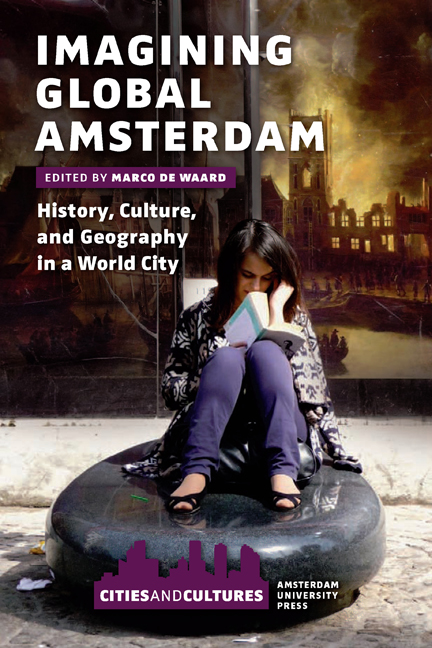7 - Form, Punch, Caress: Johan van der Keuken’s Global Amsterdam
Published online by Cambridge University Press: 19 January 2021
Summary
After many years of travelling the world with his camera, in the early 1990s documentary filmmaker Johan van der Keuken expressed his surprise at the many changes that had taken place in his hometown of Amsterdam: ‘To tell the truth, I didn't recognize all the cultures that had settled there in the past few decades, nor the subcultures and “gangs” that had sprung up’. At the same time, he realized that ‘my city, Amsterdam, was the place where everything that I could see everywhere else was represented’, and that in order to understand the world, all he needed to do was direct his camera to his own neighbourhood (van der Keuken, qtd. in Albera 2006, 16). This is when he decided to make Amsterdam Global Village, a four-hour documentary filmed in Amsterdam in the mid-1990s. He made it in his characteristic fashion, travelling through the city with his camera, visiting some of its inhabitants in their homes, listening to their stories, and sometimes following them to places elsewhere in the world – but always to return.
Johan van der Keuken captured Amsterdam with his camera from the very start of his career, following his studies at the Institut des Hautes Etudes Cinematographiques (IDHEC) in Paris in the late 1950s. As he regularly applied his camera to Amsterdam through several decades, his work forms a rich – and very personal – archive of historical impressions of an ever-changing city. Looking at some key films situated in Amsterdam, such as Beppie (1965), Four Walls (1965), Iconoclasm – A Storm of Images (1982), and Amsterdam Global Village (1996), this essay presents a double portrait of the Amsterdam corpus within van der Keuken's oeuvre. On the one hand, it charts the development of van der Keuken's different camera eyes, looking at how he cast in turns formal, angry, and loving gazes on the city, and exploring the social and political implications of these different stylistic registers. On the other hand, the portrait to be presented here is that of Amsterdam itself and its inhabitants in their development over time, with a special focus on the increasing intrusion of the ‘global’ in the everyday life and culture of the city.
- Type
- Chapter
- Information
- Imagining Global AmsterdamHistory, Culture, and Geography in a World City, pp. 125 - 142Publisher: Amsterdam University PressPrint publication year: 2012



